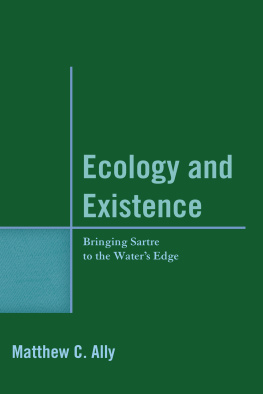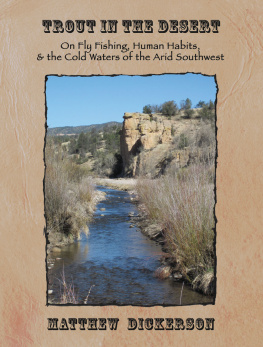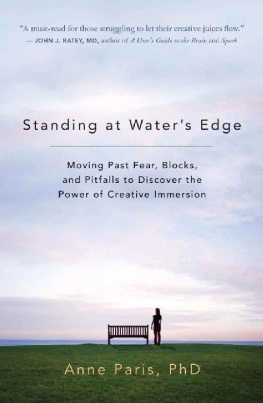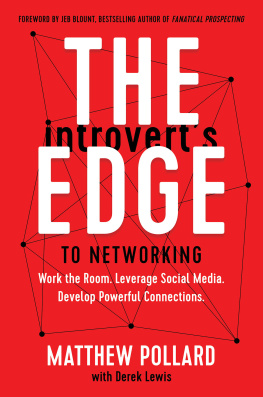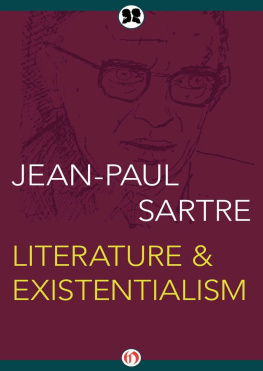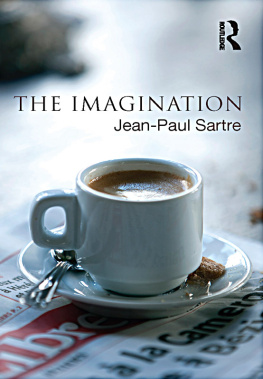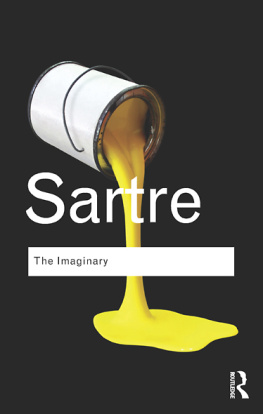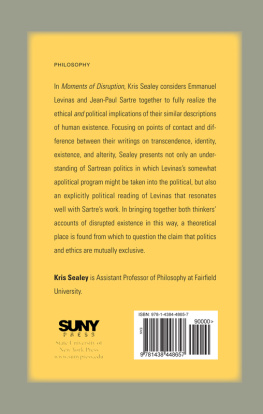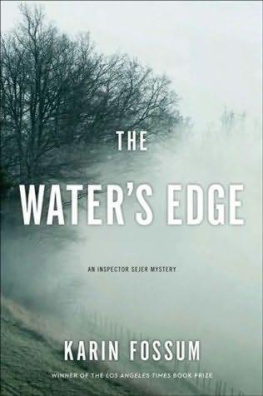Matthew C. Ally - Ecology and Existence: Bringing Sartre to the Waters Edge
Here you can read online Matthew C. Ally - Ecology and Existence: Bringing Sartre to the Waters Edge full text of the book (entire story) in english for free. Download pdf and epub, get meaning, cover and reviews about this ebook. year: 2017, publisher: Lexington Books, genre: Home and family. Description of the work, (preface) as well as reviews are available. Best literature library LitArk.com created for fans of good reading and offers a wide selection of genres:
Romance novel
Science fiction
Adventure
Detective
Science
History
Home and family
Prose
Art
Politics
Computer
Non-fiction
Religion
Business
Children
Humor
Choose a favorite category and find really read worthwhile books. Enjoy immersion in the world of imagination, feel the emotions of the characters or learn something new for yourself, make an fascinating discovery.
- Book:Ecology and Existence: Bringing Sartre to the Waters Edge
- Author:
- Publisher:Lexington Books
- Genre:
- Year:2017
- Rating:4 / 5
- Favourites:Add to favourites
- Your mark:
- 80
- 1
- 2
- 3
- 4
- 5
Ecology and Existence: Bringing Sartre to the Waters Edge: summary, description and annotation
We offer to read an annotation, description, summary or preface (depends on what the author of the book "Ecology and Existence: Bringing Sartre to the Waters Edge" wrote himself). If you haven't found the necessary information about the book — write in the comments, we will try to find it.
Ecology and Existence: Bringing Sartre to the Waters Edge — read online for free the complete book (whole text) full work
Below is the text of the book, divided by pages. System saving the place of the last page read, allows you to conveniently read the book "Ecology and Existence: Bringing Sartre to the Waters Edge" online for free, without having to search again every time where you left off. Put a bookmark, and you can go to the page where you finished reading at any time.
Font size:
Interval:
Bookmark:
Ecology and Existence
Ecology and Existence
Bringing Sartre to the Waters Edge
Matthew C. Ally
LEXINGTON BOOKS
Lanham Boulder New York London
Published by Lexington Books
An imprint of The Rowman & Littlefield Publishing Group, Inc.
4501 Forbes Boulevard, Suite 200, Lanham, Maryland 20706
www.rowman.com
Unit A, Whitacre Mews, 26-34 Stannary Street, London SE11 4AB
Copyright 2017 by Lexington Books
Excerpts from Search for a Method by Jean-Paul Sartre, translated by Hazel E. Barnes, translation copyright 1963 by Alfred A. Knopf, a division of Penguin Random House LLC. Used by permission of Alfred A. Knopf, an imprint of the Knopf Doubleday Publishing Group, an division of Penguin Random House LLC. All rights reserved.
Excerpts from Sartre, Jean-Paul. Notebooks for an ethics. Chicago, IL: University of Chicago Press, 1992. Used with permission of Chicago University Press.
Excerpts from Sartre, Jean-Paul. Colonialism and neocolonialism. London: Routledge, 2006. Used with permission of Routledge.
Excerpts from Sartre, Jean-Paul. The Imaginary. Translated by Jonathan Webber. New York: Routledge, 2004. Used with permission of Routledge.
Excerpts from Sartre, Jean-Paul. Critique of Dialectical Reason: Volume One, Theory of Practical Ensembles. Translated by Alan Sheridan-Smith. London: Verso Books, 1991a. Used with permission of Verso Books UK.
Excerpts from Sartre, Jean-Paul. Critique of Dialectical Reason: Volume Two (unfinished), The Intelligibility of History. Translated by Quintin Hoare. London: Verso Books, 1991b. Used with permission of Verso Books UK.
Excerpts from Sartre, Jean-Paul. Being and Nothingness: An Essay in Phenomenological Ontology. Translated by Hazel Barnes. New York: Philosophical Library, 1956. Used with permission of Philosophical Library.
Excerpts from Sartre, Jean-Paul. The Family Idiot: Gustave Flaubert, 18211857. Chicago: University of Chicago Press, 1981. Used with permission of Chicago University Press.
All rights reserved . No part of this book may be reproduced in any form or by any electronic or mechanical means, including information storage and retrieval systems, without written permission from the publisher, except by a reviewer who may quote passages in a review.
British Library Cataloguing in Publication Information Available
Library of Congress Cataloging-in-Publication Data
Names: Ally, Matthew C., 1965 author.
Title: Ecology and existence : bringing Sartre to the waters edge / Matthew C. Ally.
Description: Lanham, MD : Lexington Books, 2017. | Includes bibliographical references and index.
Identifiers: LCCN 2017016627 (print) | LCCN 2017017973 (ebook) | ISBN 9780739182895 (electronic) | ISBN 9780739182888 (cloth : alk. paper)
Subjects: LCSH: Existentialism. | Ontology. | Human ecology. | Sartre, Jean-Paul, 19051980.
Classification: LCC B819 .A65 2017 (ebook) | LCC B819 .A65 2017 (print) | NLM B819 .A65 2017 | DDC 142/.78dc23 LC record available at https://lccn.loc.gov/2017016627
 The paper used in this publication meets the minimum requirements of American National Standard for Information SciencesPermanence of Paper for Printed Library Materials, ANSI/NISO Z39.48-1992.
The paper used in this publication meets the minimum requirements of American National Standard for Information SciencesPermanence of Paper for Printed Library Materials, ANSI/NISO Z39.48-1992.
Printed in the United States of America
For Biljana,
and for our daughters, Ana and Eva,
and for their generation,
and the seventh generation,
and the seven-hundredth generation,
and for all the other-and-more-than-human beings of Earth,
without whom,
naught.
ontology n. The study of being or existence.
(From Greek, on- , ont- , present participle of eninai to be, to exist)
ecology n. The study of relationships between organisms and their environments.
(From Greek, oikos house, home, habitation, dwelling place)
limnology n. The study of ponds, lakes, and other bodies of fresh water.
(From Greek, limne standing water, tidal pool, marsh, lake, pond)
It is for the ocean that the tempest is made. Ponds, when they are stirred up, give off only unhealthy odors. I must love you to tell you these things. Forget me.
Gustave Flaubert
The great difficulty of limnology is that many quite disparate things must be done at once.
G. Evelyn Hutchinson
Contents
It was nearly ten years ago that I had the idea to write a short essay about a pond in the woods. Thank you, Mr. Thoreau. It is not short, but it is still an essay. Merci, M. de Montaigne. If in the end it turned out to be a whole book about the Earth and the world, I could not have written it without the pond. I will be forever grateful for that bit of still water in the woods. Needless to say, a lot of people have come along for this walk along the waters edge, friends, family, colleagues, and mentors.
Roger Parrott (19302008) set me firmly on the ecological path. His teachings in agronomy and forestry and conservation changed my life, both its trajectory and its goal. I can still conjure Rogers crows-footed squint as we crouched together to look at the ground, and then at the pasture, and then at the line of trees along its edge, and then at the forest beyond; I can still hear the patient cadence of his voice as he talked about the relations among the fields and the forests and the processes unfolding within and between them and the patterns that emerge from it all. Roger taught me to see the Earth in a single blade of grass and the world in a meadow. No small lesson. I can only hope he would approve of this book.
I blame James P. Carse for my abiding fascination with Sartres thought and manner of thinking, among other things. Though I had read Nausea, No Exit , and The Flies by the time I became Jims student in my sophomore year of college, it was he who helped me to safely navigate my first foray into Being and Nothingness . His inimitable ability to make seemingly incomprehensible ideas at least seem comprehensible, his boundless enthusiasm in the classroom, his personal and intellectual generosity during office hours, and his willingness to read unconventionally structured hand-written student essays passed to him by befuddled graduate teaching assistants, convinced me that a life of teaching and learning and writing is a life worth living and worth examining.
Though they would deny it, I could not have written this book without Robert Stone and Elizabeth Bowman. Sartre scholars, activists, dear friends, extended family, they have given their undying support to all my endeavors, personal, political, and philosophical. I cannot list all the good things that have come into my life since that contingent encounter with Bob on a train, and soon after, the necessary meeting with Betsy. Their many thoughts on this project and on portions of the manuscript have been more helpful than they know.
Joe Catalano and Bill McBride would surely be surprised to know how much they have influenced me, not only in my reading of Sartre, but in my sense of what reading is and what it means to write. Joe has never held back when he disagrees with my interpretations, and he has always encouraged me to trust my judgment. Bill has been constant in his appreciation of my work, and especially of this project, even if he will no doubt challenge me on some of its details. Two bits of their sage advice have stayed with me since graduate school. In the margins of an essay on Sartre and Levinas, Joe wrote, Beautiful. Show it to me. After willingly rereading the umpteenth draft of an essay on Sartres unpublished ethical writings, Bill emailed his thoughtful response: Matthew, let it go. Bill. I am a much better scholar and writer thanks to Bill and Joe.
I could not have written this book without the support of my many, many colleagues in the Department of Social Sciences, Human Services, and Criminal Justice, with its wondrous mix of anthropologists, psychologists, sociologists, geographers, human services scholars, criminologists, economists, political scientists, historians, and philosophers. It is, to put it mildly, an inspiring federation of committed scholar-educators. The philosophers, Roger Foster, Jose Haro, Andres Colapinto, and Cara OConnor have each read and/or discussed aspects of this project with me on multiple occasions. Their interest has meant more than they know. I thank Andres and Cara especially for helpful comments on early portions of the manuscript. I thank the economist, Aldo Fabian Balardini, and the critical geographer, Enrique Lanz Oca, with whom I have presented portions of the project on three Left Forum panels. The historian Alex dErizans and I had several conversations about gardens that turned out to be more important to both of us than either of us recognized at the time. I thank Arto Artinian for his radical sensibilities in all things from cooperativism to coffee; Page Delano, for her moonlighting as a social theorist with SSHSCRJ when the rest of the world thinks shes an English professor; Deborah Gambs for her sociological ardor for things ecological; Elizabeth Wissinger for commiserating about process and the passage of time; Rose Kim for helping with my struggle to name the baby; and Charlie Post for guiding me to some good literature on radical social theory, and for helping to keep all of us honest.
Next pageFont size:
Interval:
Bookmark:
Similar books «Ecology and Existence: Bringing Sartre to the Waters Edge»
Look at similar books to Ecology and Existence: Bringing Sartre to the Waters Edge. We have selected literature similar in name and meaning in the hope of providing readers with more options to find new, interesting, not yet read works.
Discussion, reviews of the book Ecology and Existence: Bringing Sartre to the Waters Edge and just readers' own opinions. Leave your comments, write what you think about the work, its meaning or the main characters. Specify what exactly you liked and what you didn't like, and why you think so.

